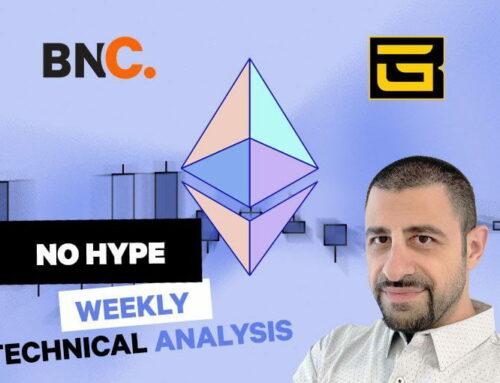Ethereum (ETH) now has a US$28.2 billion market capitalization, second only to Bitcoin’s US$123.2 billion. Volume worldwide has accounted for ~US$290,000 over the past 24 hours, behind that of Bitcoin, Bitcoin Cash, and Ethereum Classic.
Transactions per day have declined sharply recently. Bitcoin’s strong bull run and prominent media mentions have likely sucked the air out of the room for ETH usage over the past month.
Ethereum (ETH) now has a US$28.2 billion market capitalization, second only to Bitcoin’s US$123.2 billion. Volume worldwide has accounted for ~US$290,000 over the past 24 hours, behind that of Bitcoin (BTC), Bitcoin Cash (BCH), and Ethereum Classic (ETC).
 Transactions per day have declined sharply recently. Bitcoin’s strong bull run and prominent media mentions have likely sucked the air out of the room for ETH usage over the past month.
Transactions per day have declined sharply recently. Bitcoin’s strong bull run and prominent media mentions have likely sucked the air out of the room for ETH usage over the past month.
 Hash rate has plateaued, declining slightly, while difficulty has remained largely unchanged. The scheduled drop in difficulty will not last forever and is meant to decrease block times, which remain at a steady 23 seconds. The block reward has also been reduced from 5ETH to 3ETH in an effort to combat inflation and eventually phase out Proof of Work (PoW) in favor of Proof of Stake (PoS). If ETH price does not rise proportionally, ETH hash rate may continue to decline on scheduled difficulty increases.
Hash rate has plateaued, declining slightly, while difficulty has remained largely unchanged. The scheduled drop in difficulty will not last forever and is meant to decrease block times, which remain at a steady 23 seconds. The block reward has also been reduced from 5ETH to 3ETH in an effort to combat inflation and eventually phase out Proof of Work (PoW) in favor of Proof of Stake (PoS). If ETH price does not rise proportionally, ETH hash rate may continue to decline on scheduled difficulty increases.
 The ETH developers conference, DevCon3, ran from November 1st-4th in Cancun. Vitalik closed the first day discussing his idea of a roadmap for scalability and the challenges ahead. He describes a trilemma including decentralization, scalability, and security, with sharding as a potential solution moving forward. Sharding is a type of database partitioning which uses asynchronous communication between shards, with each client only processing a portion of the blockchain at a time.
The ETH developers conference, DevCon3, ran from November 1st-4th in Cancun. Vitalik closed the first day discussing his idea of a roadmap for scalability and the challenges ahead. He describes a trilemma including decentralization, scalability, and security, with sharding as a potential solution moving forward. Sharding is a type of database partitioning which uses asynchronous communication between shards, with each client only processing a portion of the blockchain at a time.
Vlad Zamifir also spoke on Casper the Friendly GHOST: A correct-by-construction blockchain which provided further explanation and insight into ETH’s upcoming shift from PoW to PoS.
ETH trading volume has been led by Bitcoin (BTC) and the US Dollar (USD) pairs on Poloniex and Bitfinex respectively. South Korean Won (KRW) has lost its multi-week reign over volume as traders have moved to Bitcoin and Bitcoin Cash recently.
Volume from Japanese Yen (JPY) has begun to grow on Quoine for the first time. Expect this share of volume to increase greatly once ETH wakes from its slumber.
 Technical Analysis
Technical Analysis
Price continues to be dominated by a large ascending triangle chart pattern, which holds a bullish bias, with a 1.618 fib extension and measured move of ~US$650 and ~US$800 respectively. The pattern is currently in its 169th day of consolidation and has remained above the 200EMA, reinforcing the continued bullish bias.
 When price has begun consolidating for an extended period of time, as it has currently, traders often look to Bollinger Bands (BBands), which measure volatility and attempt to predict resolution of that consolidation. BBands represent a volatility channel which will squeeze during low volatility and expand during high volatility. Several closes above or below the median line, or 20SMA (red), suggest a bullish or bearish bias pre-breakout, respectively. A candle close above or below the BBands post-contraction is also a predictive signal for the direction of the breakout.
When price has begun consolidating for an extended period of time, as it has currently, traders often look to Bollinger Bands (BBands), which measure volatility and attempt to predict resolution of that consolidation. BBands represent a volatility channel which will squeeze during low volatility and expand during high volatility. Several closes above or below the median line, or 20SMA (red), suggest a bullish or bearish bias pre-breakout, respectively. A candle close above or below the BBands post-contraction is also a predictive signal for the direction of the breakout.
 Daily BBands have not squeezed to this extent since October 2016 (not shown). That squeeze resolved in a bearish move, and prompted the beginning of a 40 day downtrend. Price has also not closed above the median line since October 2017, suggesting an imminent bearish resolution. One caveat with BBands: there is often an initial move in the wrong direction, which Bollinger calls the head fake.
Daily BBands have not squeezed to this extent since October 2016 (not shown). That squeeze resolved in a bearish move, and prompted the beginning of a 40 day downtrend. Price has also not closed above the median line since October 2017, suggesting an imminent bearish resolution. One caveat with BBands: there is often an initial move in the wrong direction, which Bollinger calls the head fake.
Ichimoku Cloud on the daily chart with singled settings (10/30/60/30) for a faster signal show mixed Cloud metrics, as is often the case during extended consolidation. Trading the Cloud classically would require a long or short position every kumo breakout and TK cross accordingly, as one will eventually payoff. Traders will often ignore the Cloud altogether during price structure such as this, realizing that there are better indicators that will help decide the direction of the coming resolution.
 Ichimoku Cloud on the daily chart with doubled settings (20/60/120/30) for a more accurate and smoother signal show all Cloud metrics essentially bullish. These signals will likely be too late to accurately capture the resolution of consolidation. Signals turning decidedly bearish would likely be a confirmation of BBands and singled Cloud.
Ichimoku Cloud on the daily chart with doubled settings (20/60/120/30) for a more accurate and smoother signal show all Cloud metrics essentially bullish. These signals will likely be too late to accurately capture the resolution of consolidation. Signals turning decidedly bearish would likely be a confirmation of BBands and singled Cloud.
 Lastly, the ETH/BTC ratio continues to decline as BTC/USD increases in price and ETH/USD remains stagnant. Price has sold off to the previous lift off of the bullish flag. These triangle points are often key support or resistance horizontal levels if revisited. There is also a building bullish divergence, lower lows in price on less momentum, suggestive of a reversal soon.
Lastly, the ETH/BTC ratio continues to decline as BTC/USD increases in price and ETH/USD remains stagnant. Price has sold off to the previous lift off of the bullish flag. These triangle points are often key support or resistance horizontal levels if revisited. There is also a building bullish divergence, lower lows in price on less momentum, suggestive of a reversal soon.
 Both the Ichimoku Cloud and the 50/200EMA cross have been strong signals of a trend shift, first with a bearish kumo breakout in July and then a Death Cross in October. Should ETH/BTC slide further, the previous all time high (not shown) should act as a support zone, along with the large wick that sold off to 0.025.
Both the Ichimoku Cloud and the 50/200EMA cross have been strong signals of a trend shift, first with a bearish kumo breakout in July and then a Death Cross in October. Should ETH/BTC slide further, the previous all time high (not shown) should act as a support zone, along with the large wick that sold off to 0.025.
Conclusion
Both the network and price have remained quiescent through the latest ETH hard fork. With ICO mania subsiding, transactions per day have decreased after peaking at 500,000. Buterin and the ETH development team continue to work on scaling solutions for the PoW to PoS transition.
After nearly six months of consolidation, price should break its current ranging zone within the next few weeks on an expected bullish bias. With the Bitcoin SegWit2x fork on the horizon around November 15th, Bitcoin holders looking to hedge into ETH may inadvertently also trigger a new all time high. The bullish target has been US$800 since the beginning of consolidation. A bearish target would likely be 50% of the range, or ~US$240, although a breakdown on this pattern would likely bring price much lower.



 Technical Analysis
Technical Analysis









